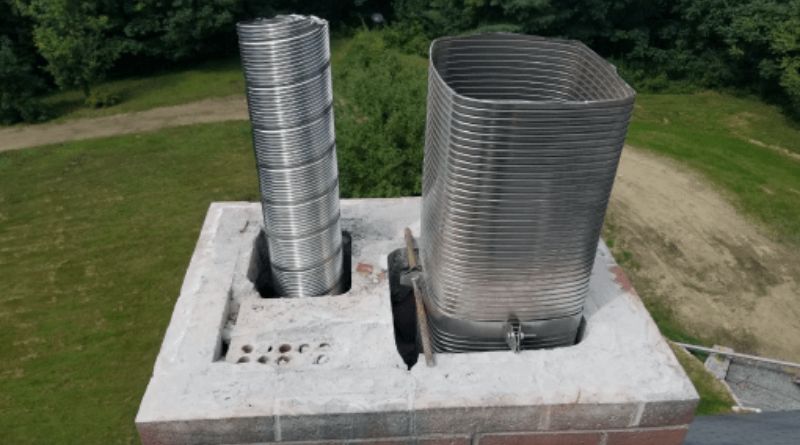Chimney liners play a crucial role in the safety and efficiency of your chimney system. They are essential for protecting your home from the harmful byproducts of combustion and preventing damage to the chimney itself. If you are considering installing or replacing a chimney liner, it’s essential to understand the available options and choose the one that best suits your chimney system’s needs. In this article, we will explore different chimney liner options and help you make an informed decision to ensure your chimney operates at its best.
Table of Contents
Why Do You Need a Chimney Liner?
Before delving into the various chimney liner options, let’s understand why a chimney liner is so important:
Safety: Chimney liners provide a barrier between the hot gases and toxic byproducts produced during combustion and the surrounding walls of your home. They prevent the risk of carbon monoxide and other harmful gases from seeping into your living spaces.
Increased Efficiency: A properly sized and insulated chimney liner ensures that your chimney draws smoke and gases efficiently, improving the overall performance of your fireplace or heating appliance.
Protection of Chimney Structure: The high temperatures generated during combustion can deteriorate the masonry over time. A chimney liner acts as a protective layer, extending the life of your chimney.
Types of Chimney Liners
Clay Tile Liners
Clay tile liners are the traditional choice for chimney lining and have been used for many years. They are suitable for most masonry chimneys and can withstand high temperatures.
However, clay tile liners are susceptible to cracking due to thermal expansion and contraction, and they may not be the best option for chimneys exposed to aggressive or acidic flue gases.
Metal (Stainless Steel or Aluminum) Liners
Metal liners, specifically stainless steel and aluminum, are popular choices for their durability and versatility. They work well for both masonry and prefabricated chimneys.
Stainless steel liners are more robust and are suitable for wood, gas, oil, and pellet-burning appliances.
Aluminum liners are generally less expensive but are best suited for gas appliances, as they may not withstand the higher temperatures produced by wood-burning appliances.
Cast-In-Place Liners
Cast-in-place liners involve pouring a special cement-like material directly into the chimney, creating a seamless and insulated liner.
These liners are ideal for chimneys with irregular shapes or significant damage, as they can conform to the chimney’s unique contours and provide added strength.
Choosing the Right Chimney Liner
The best chimney liner option for your chimney system depends on various factors, including the type of fuel you burn, the condition of your chimney, and your budget. Here are some considerations to keep in mind:
Fuel Type
For wood-burning appliances, stainless steel liners are a popular choice due to their durability and ability to withstand high temperatures.
Gas appliances generally require aluminum liners, as they produce lower temperatures and corrosive flue gases that may not be suitable for stainless steel.
Chimney Condition
If your chimney has existing damage or irregularities, a cast-in-place liner may be the best option, as it can conform to the chimney’s shape and provide added structural support.
Cost and Budget
Aluminum liners are typically more affordable than stainless steel, making them an attractive option for those on a budget. However, stainless steel liners offer superior durability and longevity.
Conclusion
Investing in the right chimney liner is essential for the safety, efficiency, and longevity of your chimney system. Each type of chimney liner has its advantages and is suitable for different chimney systems and fuel types. As chimney professionals, we recommend consulting with our team to determine the best chimney liner option for your specific needs. Whether you have a wood-burning fireplace or a gas heating appliance, a properly installed chimney liner will provide the protection and performance your chimney requires. Let us help you choose the ideal chimney liner to ensure your chimney operates at its best for years to come.
